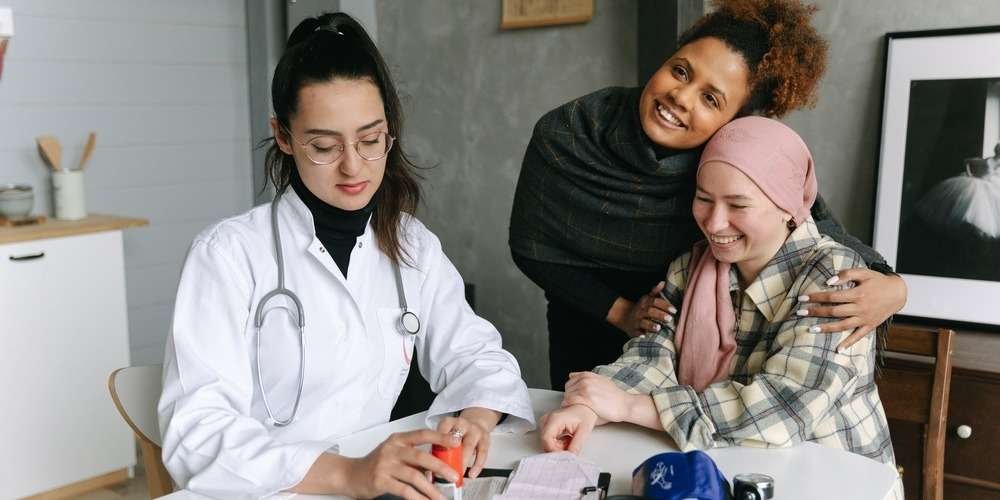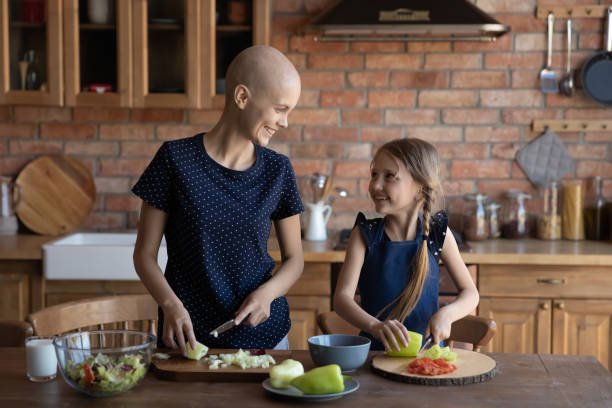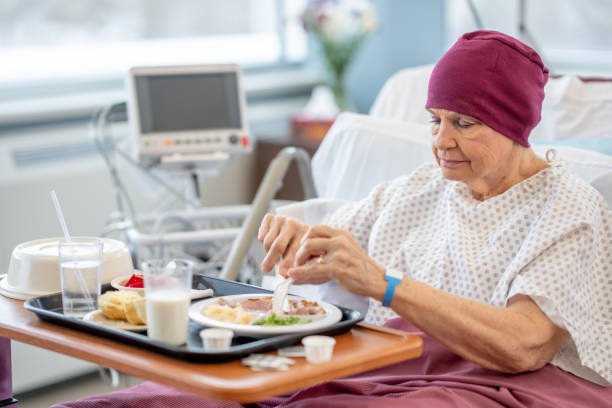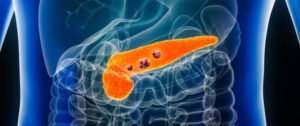
5 Principles of Cancer Diet Menu: These Are the Taboo Foods and Fruits That You Cannot Eat!
Cancer patients need to pay special attention to diet and nutrition during treatment. Studies have pointed out that 40 to 80% of cancer patients have malnutrition problems. For different stages of treatment, the foods that patients are suitable to eat and what are not suitable to eat are also different. In order to prevent cancer Patients and their caregivers have a better understanding of the dietary principles during treatment. We have compiled cancer dietary taboos for you, including foods and fruits that are not suitable for cancer, as well as the five major dietary principles of cancer, and provide menu suggestions for cancer patients’ daily diet.
What foods should cancer patients not eat? 4 major dietary taboos
1.Consume “high-fiber, stimulating” foods
Cancer patients should avoid eating rough or fibrous foods, such as beans, onions, potatoes, milk, carbonated drinks, and spicy foods or condiments. There are two main reasons:
- Radiotherapy patients are prone to loss of appetite, so they should choose foods that are well digested and absorbed.
- Gas-producing foods may easily affect patients
2.Saturated fat
Excessive intake of saturated fat will increase the incidence of cancer; for example, eating foods that are full-fat, saturated fat and animal fat, and being overweight are all risk factors that increase the risk of cancer.
3.Processed meat, red meat
The International Agency for Research on Cancer (IARC) points out that eating more processed meat and red meat may increase the risk of cancer; processed meat refers to meat products that have been smoked, salted, or treated with preservatives or chemicals, such as Bacon, sausage, ham, etc., because chemicals, preservatives, or pigments (such as nitrates or nitrites) are added during the processing, which may produce substances that burden the body. People who often eat Western-style breakfast should try to eat as little as possible. Replace processed meats such as bacon, sausages, and hamburgers with fish and lean meats.
4.Raw food, fresh vegetables
Raw food should be avoided during chemotherapy because the side effects of chemotherapy make the patient less protective. If you want to eat a raw food diet, it is more appropriate to choose a raw food diet after the chemotherapy is completed. During chemotherapy, in addition to avoiding eating undercooked vegetables, special attention should also be paid when handling food. Raw and cooked foods should be handled separately. Dishes, knives, forks, chopping boards, etc. should be avoided sharing raw and cooked foods to avoid cross-contamination of food and increased food intake. Risk of poisoning.

What fruits should cancer patients not eat? 2 major principles to remember easily
Eating more vegetables and fruits can help maintain health, but during a specific cancer treatment period, eating certain fruits may affect the prognosis. Here are three major fruit dietary taboos that should be avoided after suffering from cancer:
1.Do not eat “acidic, hard, unpeeled” fruits during chemotherapy
Chemotherapy is often accompanied by discomfort when eating, so it is recommended to eat less acidic fruits such as citrus and kiwi fruit to avoid irritation. Crisp and hard fruits such as apples are not suitable for swallowing and may cause discomfort, so they should also be avoided.
In addition, the diet during chemotherapy must have high hygiene standards. Cancer patients are more reactive to unclean food. Therefore, any food must be avoided raw to maintain protection. Fruits selected should be covered with peel and easy to peel, which is safer. When eating, they should be washed and peeled before eating, such as banana, papaya or watermelon.
The following fruits should be avoided by chemotherapy patients:
- Citrus: orange, mandarin, grapefruit, orange, lime, grapefruit or lemon
- Kiwi
- Guava
- Apple
2.Do not eat “interactive” fruits
The Cancer Research Center at The Ohio State University states that you should avoid eating or drinking grapefruit, grapefruit juice, lime, or star fruit during treatment to avoid increasing the risk of post-treatment discomfort.
Five principles of diet and nutritional supplements for cancer patients
Cancer patients are often affected by their condition and treatment, resulting in loss of appetite and malnutrition. Research shows that 80% of patients may lose weight during the cancer period. The dietary guidelines published by the American Society for Cancer Care (ACS) also recommend that cancer patients should lose weight during treatment. The intake of high calories and high protein is therefore recommended for caregivers of cancer patients to refer to the following principles when choosing diet and nutritional products:
1.High-quality protein diet
Cancer patients often need extra protein to maintain muscle mass. Protein helps with tissue repair, growth and development, and is the main component of human cells, tissues, and organs. The Taiwan Cancer Foundation pointed out that for adult chemotherapy patients, per kilogram of body weight At least 1.5 grams of protein is required; it is recommended to choose high-quality protein foods such as lean meat, poultry, fish, beans, and dairy products.
2.High calorie diet
Adequate dietary calories are very important for cancer patients, because cancer patients are prone to loss of appetite or excessive energy consumption. The Cancer Foundation recommends that adult cancer patients undergoing chemotherapy need at least 35 calories per kilogram of body weight and can choose a variety of foods. Eat enough calories, such as vegetable oils, nuts and dairy products; in terms of eating frequency, eating small and frequent meals can also help increase caloric intake.
In addition, it is necessary to avoid excessive intake of animal fat foods or snacks containing trans fat due to increased caloric intake, which will cause a burden on the body.
3.Essential nutrients for special periods: Glutamine
Glutamine accounts for 61% of the amino acid content of skeletal muscle and is the most abundant amino acid in the human body. It is found in meat, poultry, fish and dairy products.
Cancer patients who have received chemotherapy, radiotherapy, or surgery are in a high metabolic state and need to produce enough energy and nutrients to fight and restore health. Protein helps to repair tissues. The basic unit of protein is amino acid. Glutamine is not only the most abundant amino acid in the human body, but also regulates physiological functions. During cancer, the human body responds to glutamine. As the demand for glutamine increases, the concentration of glutamine in the blood is easily insufficient, resulting in low body function and increased side effects of related treatments.
In animal studies, glutamine used in chemotherapy or radiation therapy can increase protection and help the body fight cancer and maintain good health.
4. Low Glycemic Index foods
Low GI foods can help stabilize metabolism and maintain nutritional status. They are a good type of diet. It is recommended that cancer patients give priority to low GI foods.
5.Adequate zinc
Zinc is an essential nutrient for maintaining human growth and development. Lack of zinc will cause a decrease in appetite and protective power. Patients with malignant tumors will have an increased demand for zinc. Zinc helps maintain normal taste and appetite. It is recommended that patients pay more attention to their intake. Zinc can be obtained from food, and oysters, eggs, meat, and nuts are very rich in zinc; however, these foods are often high in cholesterol and fat, and the phytic acid and dietary fiber in plants can inhibit the absorption of zinc. Therefore, vegetarians are prone to zinc deficiency.
In addition, it is recommended not to eat zinc-containing health foods together with foods containing calcium and iron. It is best to take them every half hour to an hour to avoid antagonistic effects.

Preparing meals is difficult, and taking care of patients is even more difficult
The American Institute for Cancer Research (AICR) points out that an appropriate amount of supplements is sufficient and complies with the “Recommended Dietary Nutrient Intakes”. A single high-dose supplement is not recommended. Excessive dosage will affect the course of treatment. If you are worried about insufficient nutrient intake, use a supplement specially designed for patients. Nutritional supplements are a good option. One can meets your needs, eliminating bottles and a bunch of supplements. Quaker Complete Cancer Formula is fortified with the vitamins and minerals patients need and can be added to other foods. The key point is that it is lactose-free and suitable for patients who have difficulty digesting dairy products. It is especially recommended when visiting a doctor. In addition to fruits, cancer nutritional supplements are also a good choice. They are convenient to drink directly and can effectively supplement the required nutrients.
How to help the body conserve enough immunity and improve tolerance for subsequent treatments
Treatment, chemotherapy and radiotherapy are all a kind of consumption. Only by helping the body prepare for a long-term fight can we have a better quality of life.
For cancer patients and caregivers, the convenience of diet is also very important. Choosing supplements designed to meet the nutritional needs of cancer patients during treatment can satisfy the shortcomings of difficult intake in daily diet and help patients to provide more comprehensive supplements. . Among the cancer nutrition products currently on the market, the ingredients of Quaker Complete Cancer Formula are incrementally upgraded to provide more protein, fish oil and calories; each can of Quaker Complete Cancer Formula contains 19.7 grams of protein, 7 mg of zinc and 375 calories. The GI value is only 41.4 (foods below 55 are considered low GI), and glutamate peptides help meet the high-calorie and high-protein principles required by cancer patients in their daily diet.












